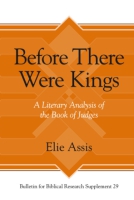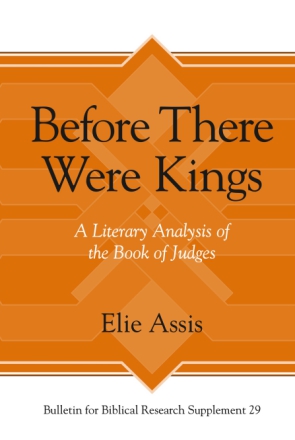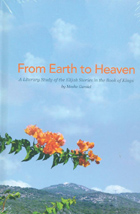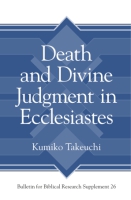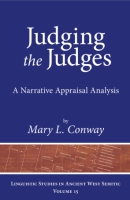Before There Were Kings
A Literary Analysis of the Book of Judges
Elie Assis
“Assis utilizes a close reading of the book of Judges and interacts with the secondary literature while contributing to a reading of the text that explains how the parts produce the whole. Before There Were Kings makes an important contribution, not simply in the method of reading, but in the particular way in which Assis’s perspective contributes to an understanding of the book.”
- Description
- Reviews
- Bio
- Table of Contents
- Sample Chapters
Elie Assis explores the ways in which the ideology and theology of Judges unfold through a careful literary analysis. Moving beyond the cycle of sin, punishment, and salvation, Assis demonstrates how differences in the descriptive language applied to each judge, as well as the evaluations in the opening and concluding chapters, provide clues as to the organization and message of the text. Most works on Judges focus on the historical background of the period or the historical process of the book’s composition and seek to dissolve its stories into component parts. In contrast, Before There Were Kings points to the deep underlying unity of Judges and the function of the individual stories within the whole.
New and carefully drawn insights related to the purpose of each section and the themes that shape the book as a whole make this a groundbreaking, programmatic contribution to research on the book of Judges. It will be of particular interest to students and scholars of the Old Testament and the Hebrew Bible.
“Assis utilizes a close reading of the book of Judges and interacts with the secondary literature while contributing to a reading of the text that explains how the parts produce the whole. Before There Were Kings makes an important contribution, not simply in the method of reading, but in the particular way in which Assis’s perspective contributes to an understanding of the book.”
Elie Assis is Professor of Bible at Bar Ilan University in Israel. He is the author of many books, including Identity in Conflict: The Struggle Between Esau and Jacob, Edom and Israel, also published by Eisenbrauns.
List of Abbreviations
Acknowledgments
INTRODUCTION
CHAPTER 1. The First Prologue to the Book of Judges: The Transition from Joshua to Judges (1:1-2:10)
CHAPTER 2. The Second Prologue to the Book of Judges: The People’s Sins in Judges (2:11-3:6)
CHAPTER 3. The Othniel Narrative (3:7-11)
CHAPTER 4. The Ehud Narrative (3:12-30)
CHAPTER 5. The Deborah Narrative and Song (4-5)
CHAPTER 6. The Gideon Narrative (6-8)
CHAPTER 7. The Abimelech Narrative (9)
CHAPTER 8. The Jephthah Narrative (10:6 – 12:7)
CHAPTER 9. Brief Lists of Five Judges (10:1-5; 12:8-15)
CHAPTER 10. The Samson Narrative (13-16)
CHAPTER 11. The Closing Narratives: Their Place, Structure, and Meaning (17-21)
CHAPTER 12. Micah’s Idol and Dan’s Migration to the North (17-18)
CHAPTER 13. The Concubine at Gibeah and Israel’s War Against Benjamin (19-21)
Bibliography
Index
Download a PDF sample chapter here: Introduction
Also of Interest
Mailing List
Subscribe to our mailing list and be notified about new titles, journals and catalogs.
